Factory Records: Exhibition explores 'vitally important' early years
- Published
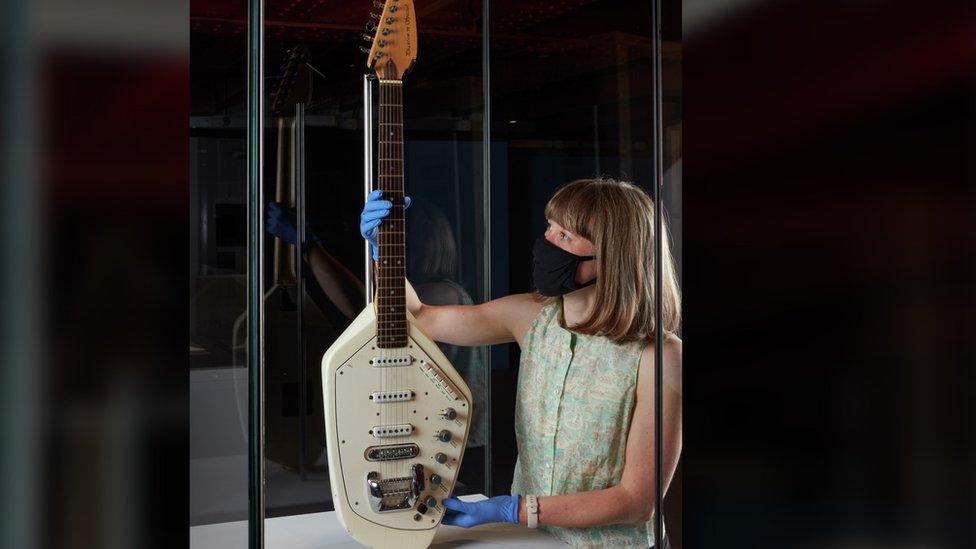
A Vox Phantom guitar used by Joy Division's Ian Curtis will go on display for the first time
An exhibition charting the rise of Factory Records from punk-inspired start-up to "influential force" has opened in the city it called home.
The Manchester label grew out of a club night, which started in 1978, and went on to find global success with bands like New Order and Happy Mondays.
Former manager Lesley Gilbert said there still being interest in the label would have surprised its founders.
Items such as a guitar used by Joy Division's Ian Curtis will be shown.
The exhibition at the city's Science and Industry Museum looks at the early years of the label, from its formation out of the Factory night at the Russell Club in Hulme by the late Tony Wilson, Alan Erasmus, Peter Saville and Martin Hannett to the launch of the label's own nightclub, The Hacienda, in 1982.
The label's artists went on to have global success, but its ethos and approach eventually led to its demise and it was declared bankrupt in 1992.
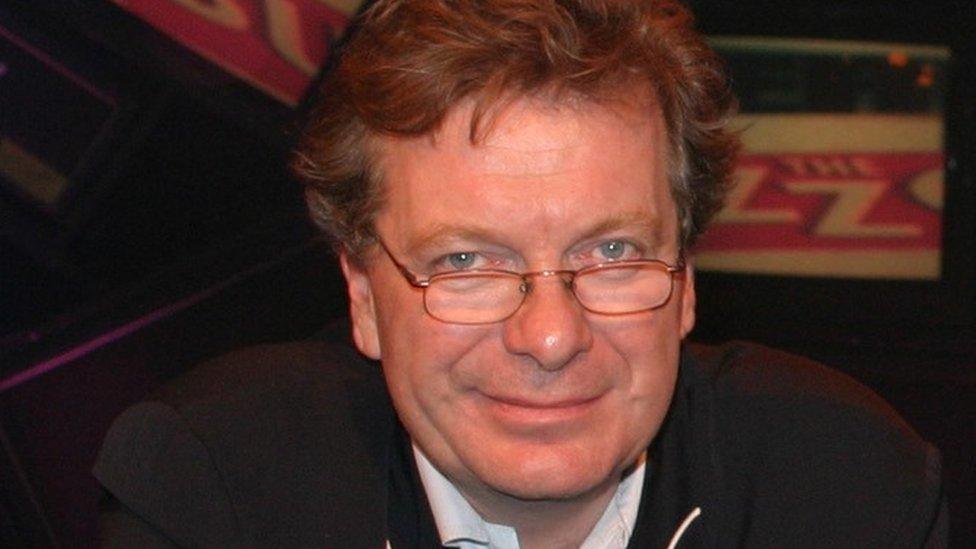
The label was founded by Tony Wilson (above), Alan Erasmus, Peter Saville and Martin Hannett
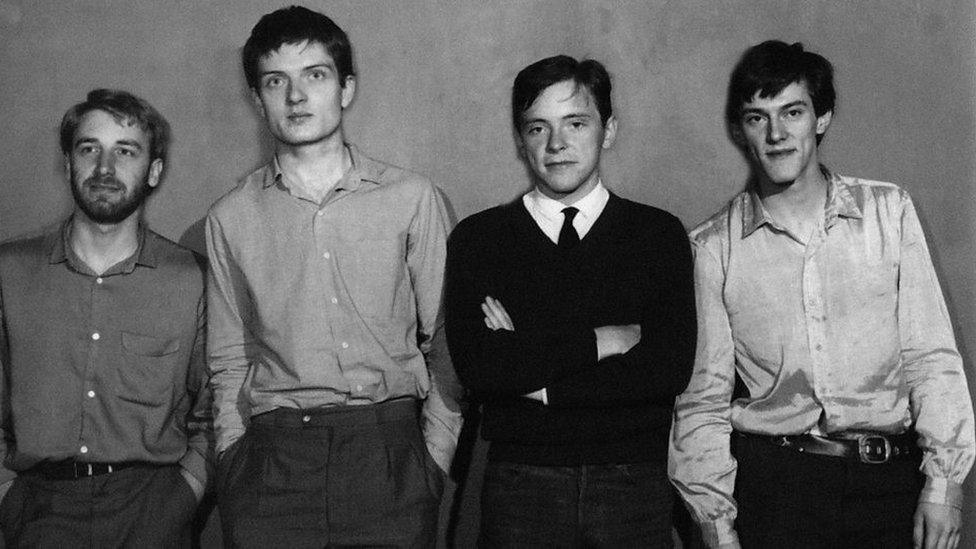
Joy Division became New Order after Ian Curtis (second from left) took his own life in 1980
Gilbert said Factory was "so special" and became "such an influential force for Manchester", but said to begin with, it "was very punk".
"Nobody at the start would have, in their wildest dreams, believed that we'd be here still talking about it today, never mind talking about such an exhibition," she said.
The former label manager, who was the partner of the late Rob Gretton, New Order's manager and co-founder of The Hacienda, said the early years were "vitally important".
"It set the scene for everything that followed with Factory; the way that the label and the bands were talked about, how it and they talked about themselves, the ethos and the look of what was produced," she said.
She said the show felt "like a homecoming", adding: "It could not be more fitting really."
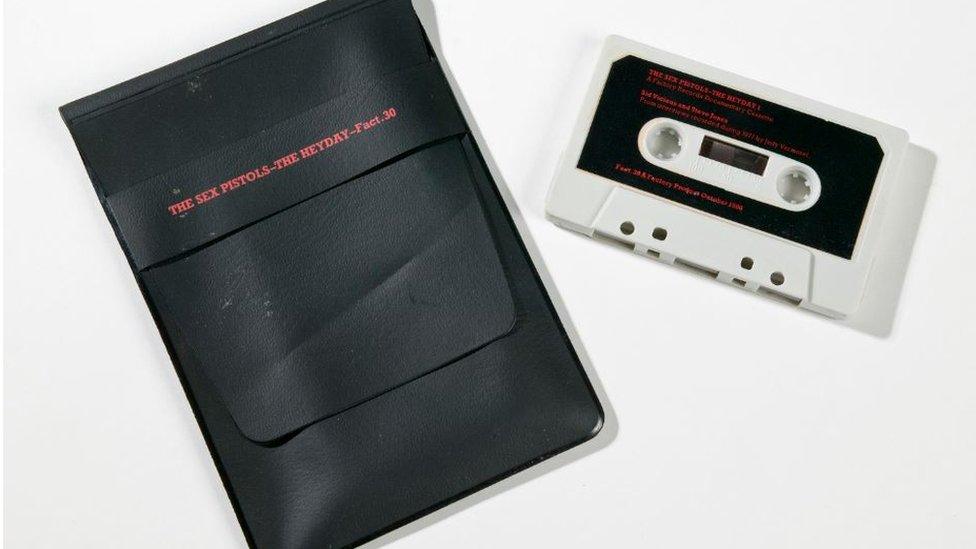
The exhibition includes all 50 of the first FAC catalogue items, including a cassette of Sex Pistols' interviews
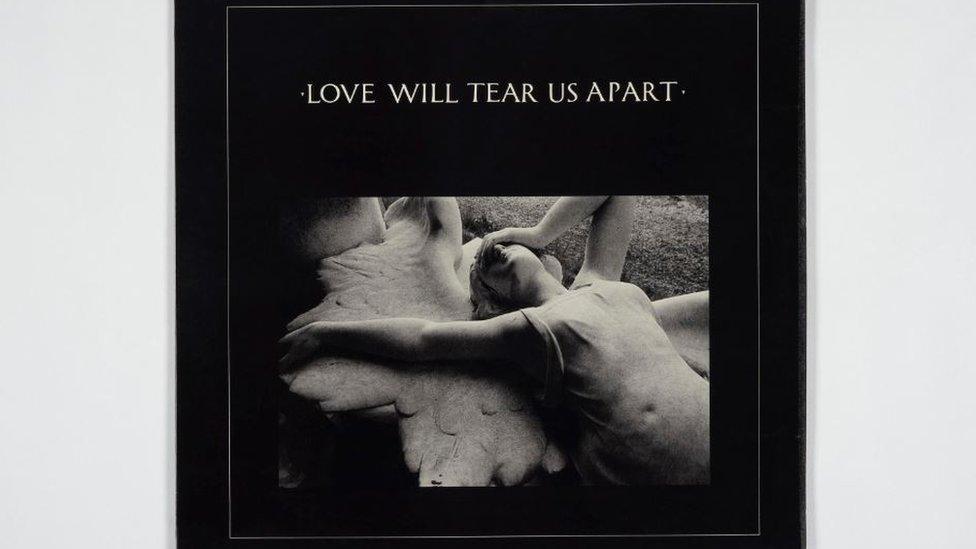
The first 50 FAC releases also includes Love Will Tear Us Apart, the single which brought Joy Division fame
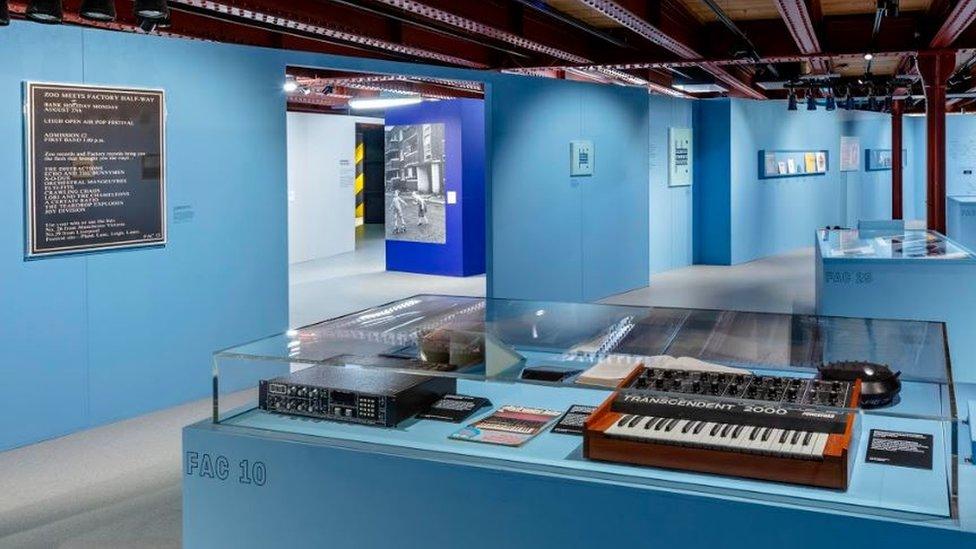
Co-curator Jon Savage said a unique combination of place, time and people made Factory Records the "perfect package"
Artist Linder and Lindsay Reade, Tony Wilson's first wife, are among five women who have recorded stories from the label's early decision-making process for the exhibition, which will also include the first 50 numbered Factory artefacts.
The label famously gave most items associated with it a FAC catalogue number and the list of the first 50 includes posters for The Factory club night, a film script, a cassette of interviews with punk band Sex Pistols and an advert for Joy Division's Closer album, alongside the usual record releases.
The show's co-curator Jon Savage said a unique combination of place, time and people made Factory Records the "perfect package" and it was "essential" that the artefacts that told the label's story were held by institutions, rather than private collections.
He said that if they were, they could "be enjoyed by everyone, particularly young people, who can use them to understand the unique personality of Manchester for themselves".
Use Hearing Protection: The Early Years of Factory Records runs until 3 January 2022.

Why not follow BBC North West on Facebook, external, Twitter, external and Instagram, external? You can also send story ideas to northwest.newsonline@bbc.co.uk
Related topics
- Published27 December 2019
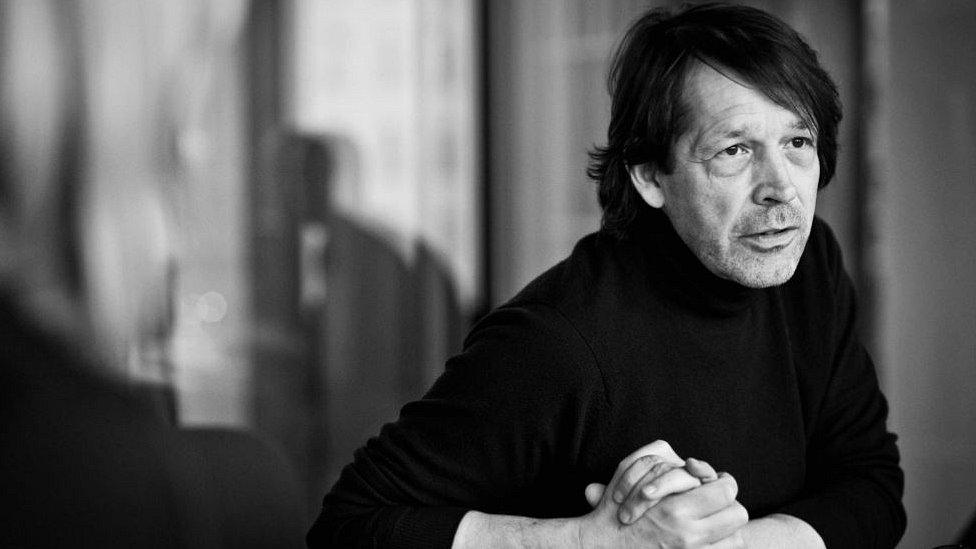
- Published9 March 2017

- Published3 December 2016
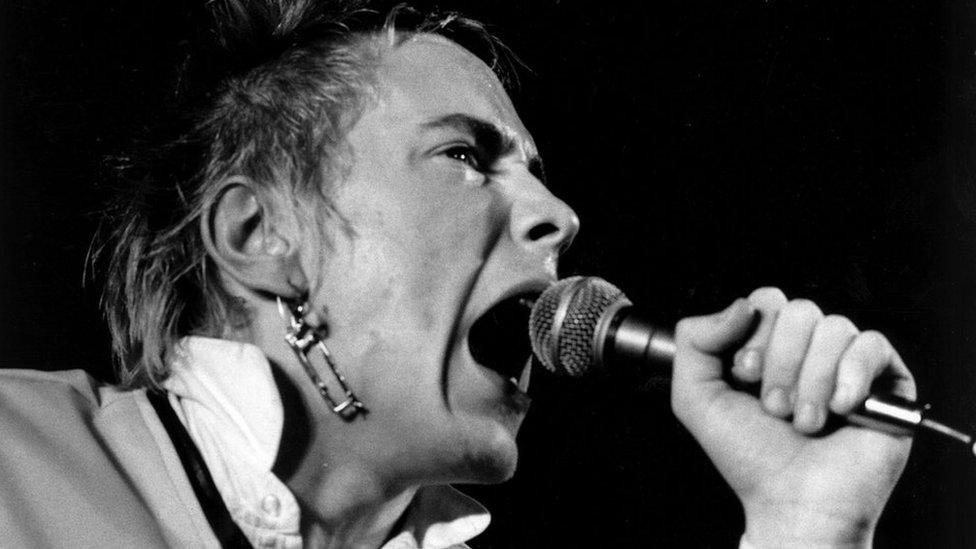
- Published21 April 2015